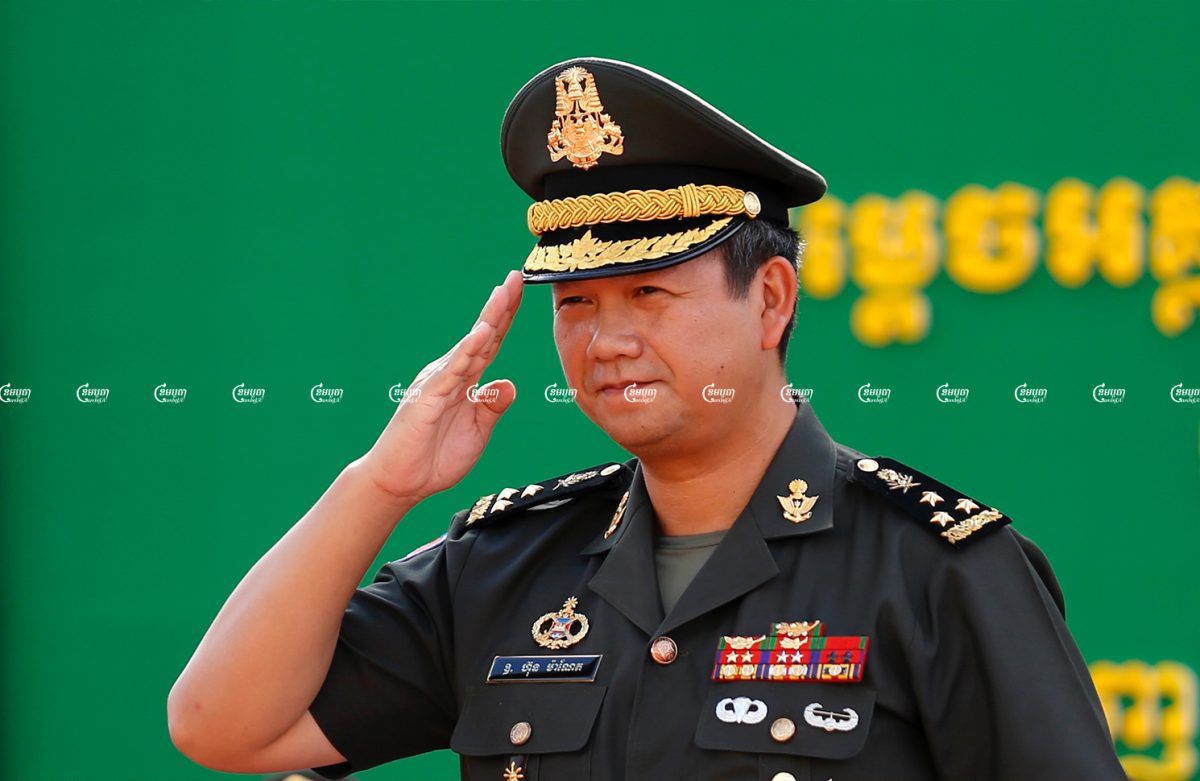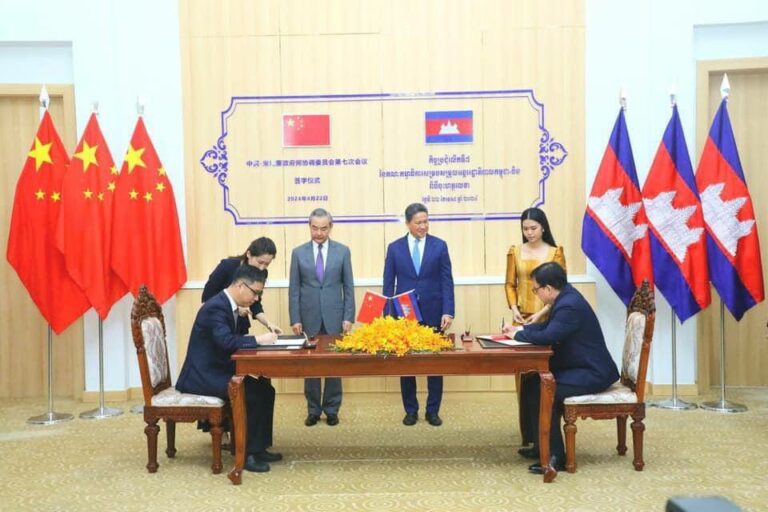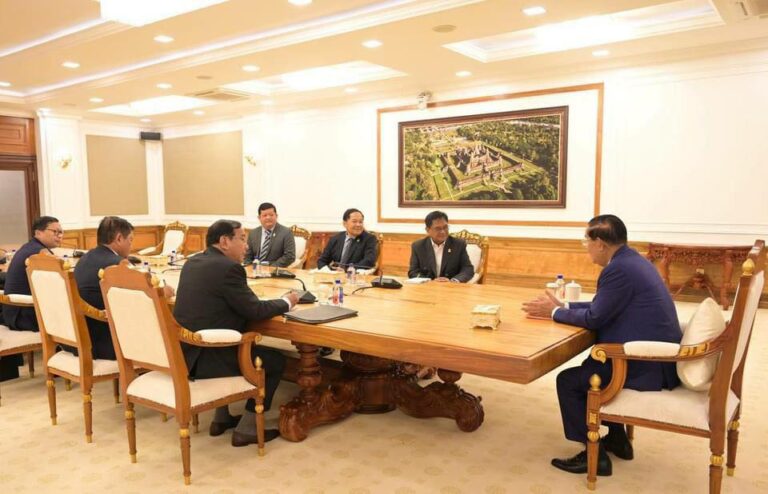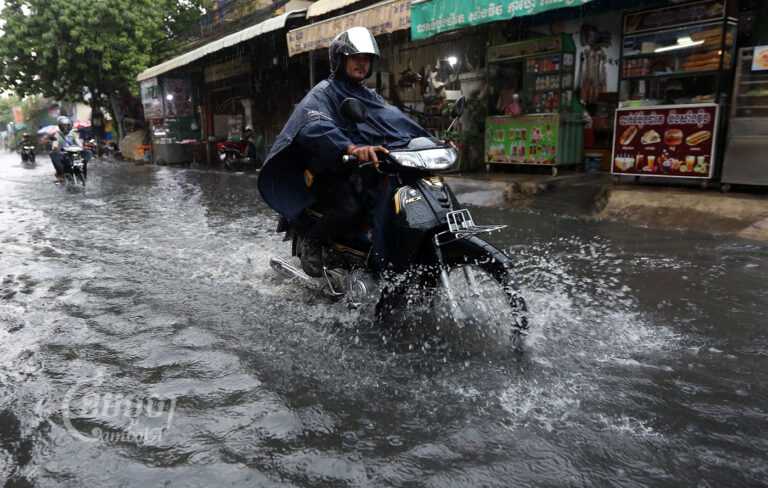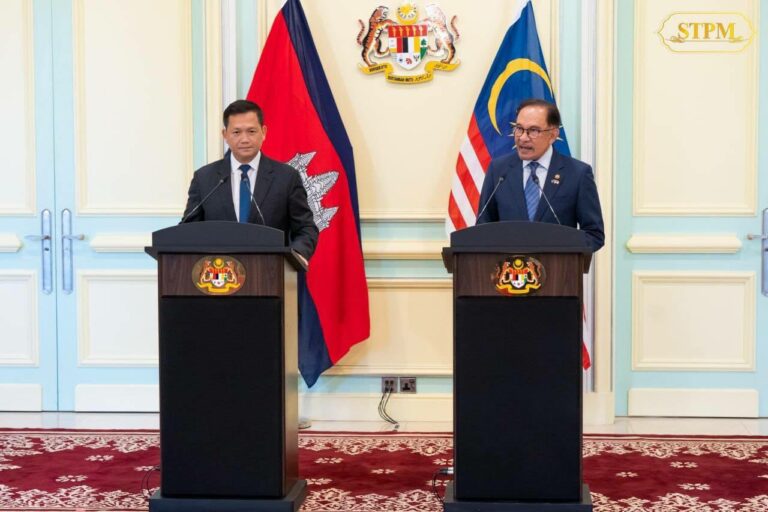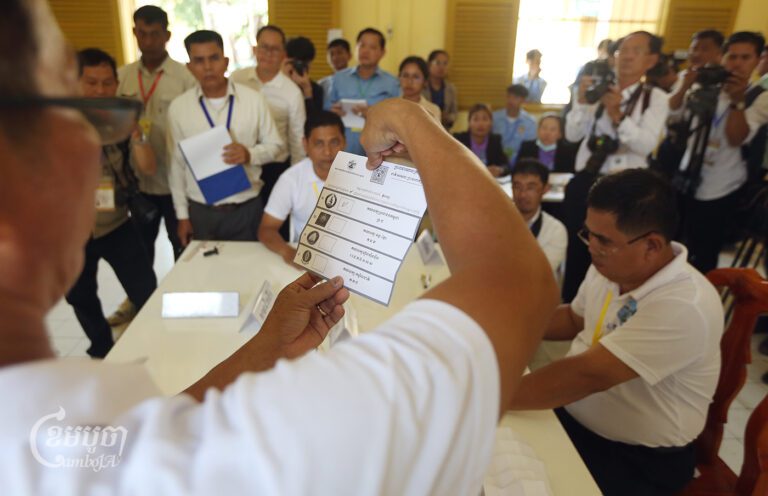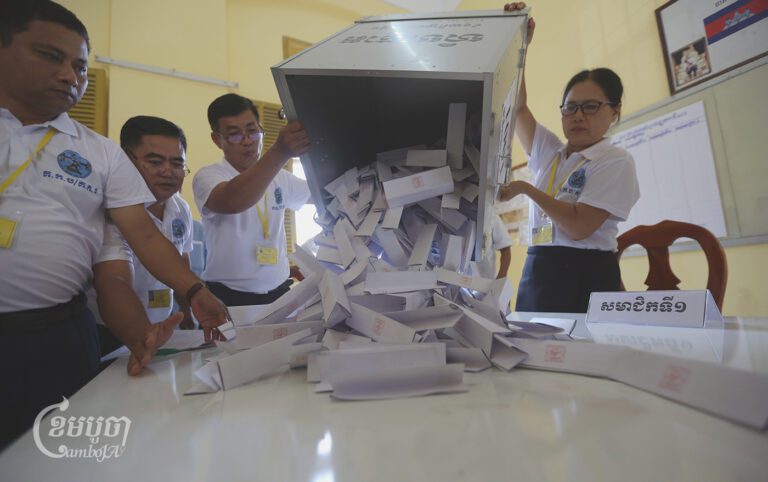Prime Minister Hun Sen said Wednesday that his oldest son, Hun Manet, could come to hold the top position in government as soon as 2023.
Speaking at the inauguration of an administration building of the Defense Ministry on December 29, Hun Sen said he planned to make a law limiting the age of prime ministers to 72.
“In 2023, if I left as a prime minister, I would be just 71 years old…I would like to stress that this time I am a prime minister and after 2023, I will be a father of a prime minister,” he said. “Before I said I will continue to be a prime minister for another 10 years, then I said I will do it until I wish not to, which means that I may leave within one years, two years… or in another 20 years, it’s up to me, so should understand the meaning clearly.”
Hun Sen also said his family would continue to hold office for decades to come. “In 2040 I will also be the grandfather of a prime minister,” he said.
Last week, the central committee of the Cambodian People’s Party endorsed Manet as their only candidate to succeed Hun Sen, with Manet expected to be listed on the 2028 ballet.
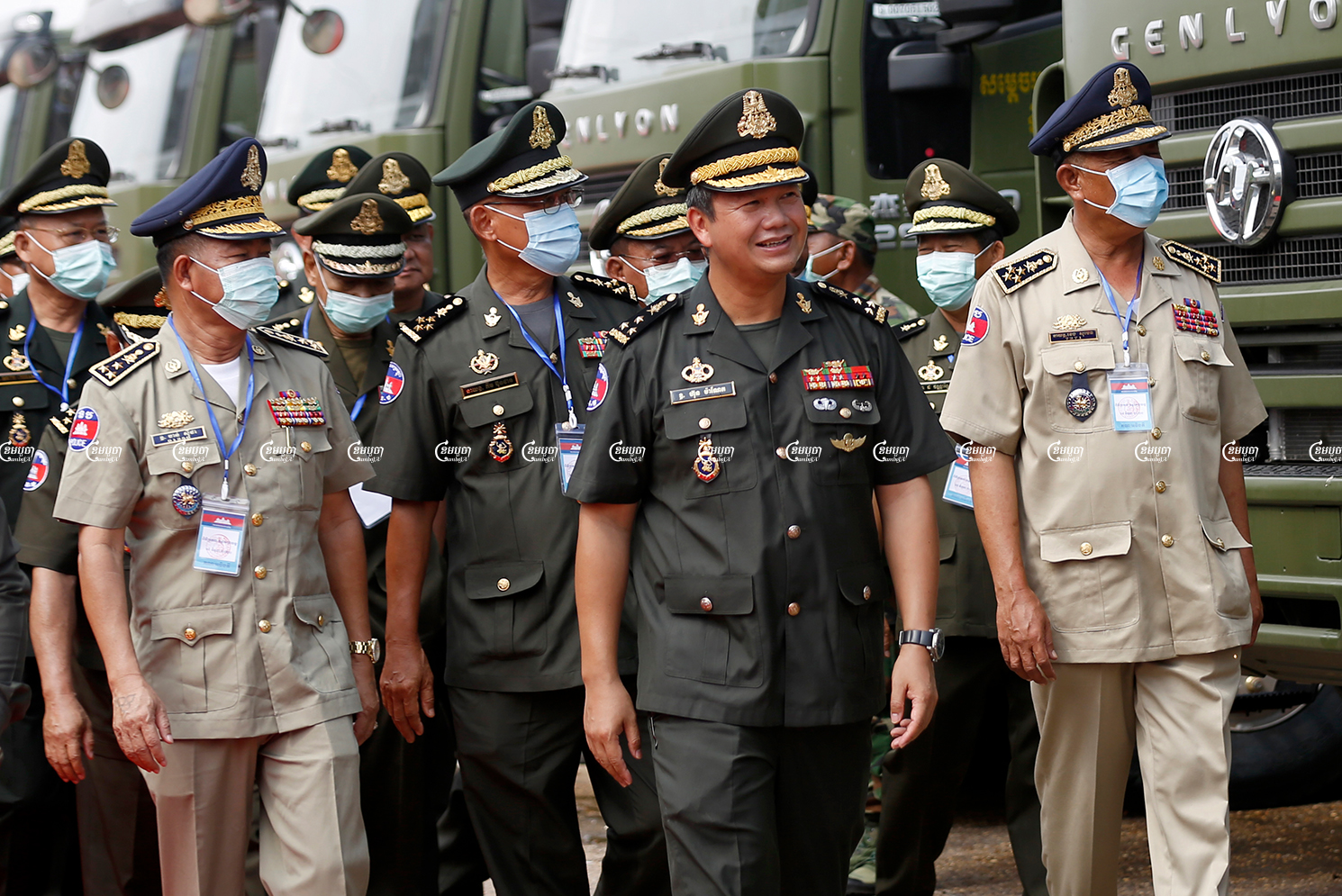
Political analyst Meas Nee said the CPP needs an appropriate amount of time until the party sees itself fully safe from threats to its popularity.
“For me I am not 100 percent sure he [Manet] will replace his father as the next successor in 2023 if the CPP still faces the threat in terms of its popularity,” he said. “If there had been an influential and strong opposition party that emerged back in 2013, it would be a difficult path for Hun Manet to gain the office because he does not have as much experience as his father.”
However, Nee said Manet will depend on his father’s influence to gain control. “But for me I am not surprised whether he could lead the country or not, what I am most concerned about is how he can lead Cambodia back to the democracy path and respect for human rights, which is important.”
While Manet would be able to become the prime minister at any time during the next government mandate, the 44 year old — who is currently deputy commander-in-chief of the Royal Cambodian Armed Forces — still needs to be accepted by the public, said Nee. Nee said Manet may face challenges both internally and from opposition parties — though the country’s primary opposition party, the Cambodia National Rescue Party, was dissolved by the Supreme Court in 2017.
Political analyst Lao Mong Hay said Manet’s succession to his father’s position is now wholly assured but whether he will succeed him in 2023 or in 2028 will remain subject to further horse trading within the CPP.
“Whether he will be well capable of running the government by himself outright, it and when he is prime minister, is very questionable,” he said.
Mong Hay said so far there is no indication that Manet has achieved much to win him public praise or appreciation.
“Owning for his rapid rise to a position of power almost entirely due to his pushy father’s patronage does not seem to help him to earn much respect from the public and from his contemporaries and to gain more authority over them,” he said.
However, he said as a compromise candidate to the premiership, it is very difficult for Manet to assert his power.
“He may well need the help and support from a mentor minister and senior ministers the same way as the successor to [former] Singaporean Prime Minister Lee Kuan Yew,” Mong Hay said. The current Prime Minister Lee Hsien Loong is the son of Lee Kuan Yew — though another prime minister held the position for 14 years between father and son.
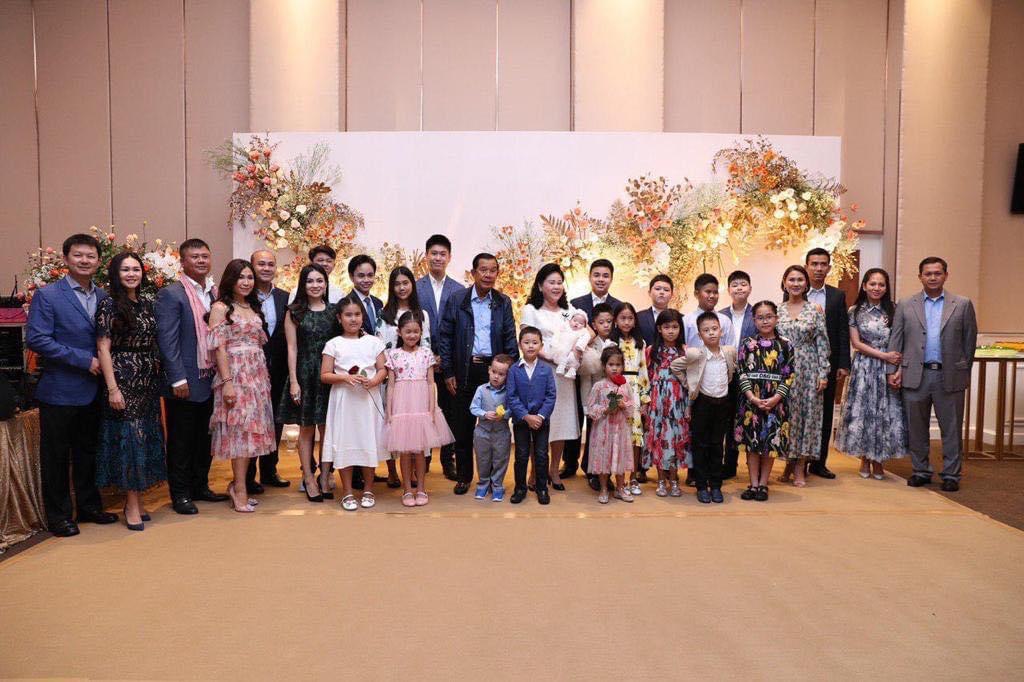
Sophal Ear, a Cambodian political commentator and associate professor at Occidental College in California, said Hun Sen’s ability to secure his son as his successor will help deflect some of the attention on his long tenure as PM.
Sophal said Hun Sen also wants to ensure the family continues to rule Cambodia in the future.
However, he said that 2023 is a bit too soon for Manet to become prime minister, unless Hun Sen faces headwinds that prevent his continued rule.
“It’s easy to then say: my son will take over for me. Of course, Manet should join the National Assembly. The soonest he can do that is 2023,” he said.
Sophal said Manet will also face a matter of balancing the interests of and factions within the party.
“I think everyone has an opinion of Manet. Among the public there are those who already judged him. What has been his record? Will he be able to keep rivals at bay? Will he be like Lee Hsieng Loon or Kim Jong-un?” he said.
CPP spokesman Sok Eysan said that Manet will become prime minister when the situation is favorable, the exact time of which is not yet clear.
“We are clear in our minds that he [ Manet] has the ability to lead the country, that is why we nominated him as the candidate for the next party’s Prime Minister… but asked if that is in 2023 or 2028, we do not know yet,” he said. “When the right circumstances arrive, [Manet] will be put in place immediately, otherwise Samdech Hun Sen will remain in office.”
Eysan denied that Manet’s unanimous central committee endorsement was due to his father’s influence, saying that it was based solely on his personal characteristics.
Vice president of the Cambodia Reform Party, Ouch Chanrath, said he welcomed the CPP’s new generation and hoped it would bring a new culture of political competition.
“We know that the old leaders of the CPP were armed struggling and using a lot of violence, so it is difficult for us to compete, sometimes they use ways to crack down on [opponents],” he said.
“There would be change if there were a free and fair election, while the ruling party has more access to state resources, including in the media,” he said. “Based on law, even the National Election Committee has not been designed to help the CPP, but in spirituality, they have a tendency toward the ruling party while many NEC’s leaders are from CPP.”
Koul Panha, an advisor to local election monitor COMFREL, who has been living in following the dissolution of the CNRP and subsequent crackdown on civil society, said that based on Cambodian laws, Manet must resign from his military position when he becomes a political party officer and becomes a PM candidate and political elected representative.
“[It] affects the neutrality of the military while not respecting the spirit of the laws related to the neutrality of the military officials,” he said.


